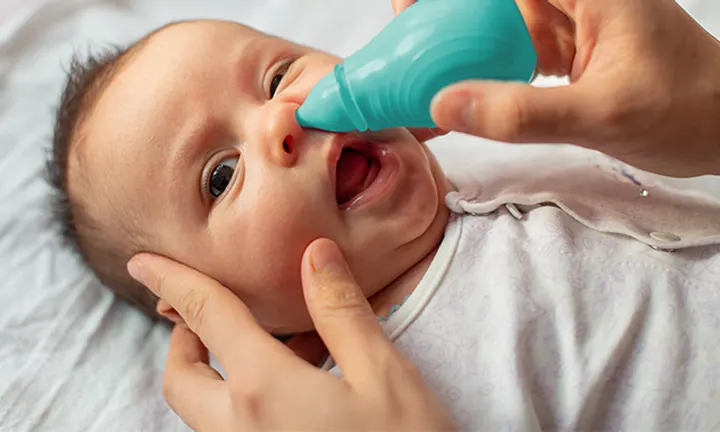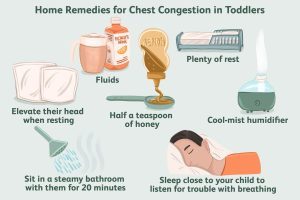How to Get Mucus Out of Baby Chest, to get mucus out of a baby’s chest, try using techniques such as steam therapy and saline drops. Introducing mucus in a baby’s chest can be distressing for both the baby and the parents.
When babies have a congested chest due to mucus build-up, it can make breathing difficult and may even lead to discomfort or minor illnesses. Fortunately, there are effective and safe methods to help get rid of the mucus and provide relief to the baby.
We will explore various techniques to successfully remove mucus from a baby’s chest, including steam therapy and the use of saline drops. These methods aim to safely clear the airways and promote easier breathing for your little one.
Understanding Baby Chest Congestion, Mucus out of baby chest
Help your baby with chest congestion by using gentle methods to remove mucus. Try steam inhalation, nasal saline drops, and ensuring proper hydration to ease discomfort and promote breathing. Be mindful of your baby’s comfort and seek medical advice if symptoms persist.
When it comes to your little one’s health, it’s essential to be well-informed about common ailments, such as baby chest congestion. Chest congestion occurs when the respiratory system becomes inflamed, resulting in the accumulation of mucus in the airways. This can make breathing difficult and cause discomfort for your baby. Understanding the causes and symptoms of chest congestion is crucial in providing the necessary care and relief for your little one.
Common Causes Of Chest Congestion In Babies
- Respiratory Viral Infections: Viral infections like the common cold or flu can often lead to chest congestion in babies. These infections cause inflammation in the respiratory tract, leading to an excess production of mucus.
- Environmental Factors: Exposure to irritants such as tobacco smoke, dust, or allergens can also trigger chest congestion in infants. These irritants can cause inflammation in the airways, leading to mucus buildup.
- Respiratory Tract Infections: Bacterial infections, such as bronchitis or pneumonia, can cause chest congestion in babies. These infections lead to inflammation and excessive mucus production, making it difficult for infants to breathe.
Symptoms To Look Out For
- Coughing: A persistent cough, especially when accompanied by phlegm, can indicate chest congestion in infants.
- Nasal Congestion: Difficulty in breathing through the nose, frequent sniffles, or a runny nose can be signs of chest congestion.
- Rapid or Labored Breathing: If your baby is breathing rapidly or struggling to catch their breath, it may be a symptom of chest congestion.
- Wheezing or Noisy Breathing: Unusual sounds while breathing, such as wheezing or raspy noises, can indicate mucus in the chest.
- Fussiness or Irritability: Chest congestion can cause discomfort, leading to increased fussiness or irritability in your baby.
By recognizing these common symptoms, you can take prompt action to alleviate your baby’s chest congestion before it escalates. Understanding the causes and symptoms of chest congestion in babies empowers you to provide the necessary care and seek medical intervention if required.

Natural Remedies For Baby Chest Congestion
When your baby is suffering from chest congestion, you naturally want to find gentle and effective ways to provide relief. There are several natural remedies you can try at home to help clear your baby’s chest and ease their discomfort. Let’s explore these natural remedies for baby chest congestion.
Steam Therapy
Steam therapy can help loosen mucus in your baby’s chest, making it easier for them to cough it up. The moist air helps to soothe and open the airways, providing relief for your little one. You can create a steamy environment by running a hot shower in the bathroom and sitting in the steamy room with your baby for a few minutes.
Saline Drops
Using saline drops can help to thin and loosen mucus in your baby’s chest, making it easier for them to expel it. You can administer saline drops by placing a few drops in each nostril to help clear nasal congestion and the associated chest congestion.
Warm Compress
Applying a warm compress to your baby’s chest can offer relief from chest congestion. The warmth can help to loosen mucus and provide comfort to your little one. Simply soak a small towel in warm water, wring it out, and then place it gently on your baby’s chest for a few minutes.
Humidifier Use
Using a humidifier in your baby’s room can help to add moisture to the air, which can ease chest congestion. The increased humidity can help to keep your baby’s airways moist, making it easier for them to breathe and reducing chest discomfort.
Over-the-counter Remedies
When it comes to addressing mucus in a baby’s chest, over-the-counter remedies can be helpful in providing relief. These remedies are readily available and can assist in managing congestion and promoting easier breathing. Let’s explore the various over-the-counter options to alleviate mucus in a baby’s chest.
Nasal Aspirator
A nasal aspirator is an effective tool for removing mucus from a baby’s nostrils and chest. It works by creating suction to extract the mucus and can be used with a saline solution to further loosen the mucus, making it easier to remove. Using a nasal aspirator can help your baby breathe more comfortably and improve their overall well-being.
Chest Rubs
Chest rubs containing natural ingredients such as menthol or eucalyptus can provide relief from chest congestion. Gently massaging the rub onto the baby’s chest can help clear mucus and soothe discomfort. Look for products specifically designed for infants to ensure safety and effectiveness.
Vaporizer Or Nebulizer
Utilizing a vaporizer or nebulizer can help reduce mucus in the baby’s chest by moistening the air and promoting easier breathing. These devices can be used with disinfectant solutions or saline water to further enhance their effectiveness. Keeping the baby in a well-humidified environment can ease congestion and provide relief.
Home Care Tips To Relieve Baby’s Chest Congestion
Home Care Tips to Relieve Baby’s Chest Congestion
Baby chest congestion can be a cause of distress for both the baby and the parents. However, there are some simple home care tips that can help relieve baby’s chest congestion and aid in their recovery. These tips focus on elevating the baby’s head and encouraging fluid intake, which can help reduce mucus buildup and alleviate discomfort.
Elevating the baby’s head can help keep their airways clear and promote easier breathing. Here are some effective ways to elevate the baby’s head:
- Use a firm, flat pillow or folded towels under the crib mattress to create a slight incline.
- If the baby is sleeping in a bassinet or co-sleeper, place a rolled-up towel or blanket under the head end of the mattress to elevate the head.
- When holding the baby, keep them in an upright position by supporting their head and back.
By elevating the baby’s head, you can help reduce the symptoms of chest congestion and provide them with better rest and comfort.
Ensuring that the baby stays hydrated is crucial for thinning out the mucus and facilitating its removal. Here are some ways to encourage fluid intake:
- Offer breast milk or formula frequently, as it provides essential fluids to keep the baby hydrated.
- If the baby is older than six months, you can offer small amounts of water in a cup throughout the day.
- Ensure the room temperature is comfortable, as excessive heat can lead to dehydration.
By promoting adequate fluid intake, you can help your baby loosen and expel mucus, providing relief from chest congestion.
When To Seek Medical Help
If your baby’s mucus doesn’t improve or worsens
despite home remedies, it might be time to seek medical help. Here’s what to look for:
Persistent Symptoms
- Baby showing persistent signs of discomfort or distress.
- Mucus persists for more than a week.
Difficulty Breathing
- Your baby is struggling to breathe.
- Breathing is rapid or noisy due to mucus.

Preventing Baby Chest Congestion
Baby chest congestion can be distressing for both the baby and the parents. Preventing baby chest congestion is important to ensure the baby’s comfort and well-being. By taking proactive steps to promote good hygiene practices and minimize exposure to irritants, you can reduce the risk of baby chest congestion.
Proper Hygiene Practices
Proper hygiene practices play a crucial role in preventing baby chest congestion. Washing hands frequently and using hand sanitizer can reduce the risk of spreading viruses and infections. Ensure that baby’s toys and pacifiers are regularly cleaned and sanitized to prevent the accumulation of germs. Additionally, frequently washing bedding and changing clothing can help minimize the presence of allergens that could contribute to chest congestion.
Avoiding Exposure To Irritants
Avoiding exposure to irritants is essential for preventing baby chest congestion. Limiting the baby’s exposure to cigarette smoke, polluted air, and strong fragrances can help reduce the risk of respiratory issues. Creating a smoke-free environment and maintaining good indoor air quality by using an air purifier can minimize the baby’s vulnerability to chest congestion.
Dos And Don’ts For Managing Baby Congestion
When your baby is struggling with congestion, it can be a distressing experience for both you and your little one. However, there are several ways you can provide relief and help your baby breathe easier. To ensure you navigate this situation effectively, it’s essential to follow a set of dos and don’ts when managing baby congestion. Let’s take a look at some important guidelines you should keep in mind.
Do: Gentle Nose Cleaning
Gentle nose cleaning can help clear the mucus from your baby’s chest and make breathing more comfortable. Here are a few safe and effective ways to clean your baby’s nose:
- Use a gentle saline solution: Saline drops or sprays can help loosen the mucus and make it easier to remove. Ensure the saline solution is specifically designed for babies.
- Suction with a bulb syringe: Gently insert the bulb syringe into your baby’s nostril and release it to create suction. This will help remove the mucus from the nose. Remember to clean and sanitize the syringe after each use.
- Moisturize with a nasal saline gel: Apply a small amount of nasal saline gel around your baby’s nostrils to keep them moisturized. This can help prevent nasal dryness and make it easier for mucus to come out.
Remember, always approach nose cleaning with utmost care and gentleness, ensuring not to cause any discomfort to your baby.
Don’t: Overmedicating
While it might be tempting to reach for over-the-counter medications to alleviate your baby’s congestion, it’s important to avoid overmedicating. Here are a few reasons why:
- Baby safety first: Some medications formulated for adults or older children may not be suitable for babies. Always consult your pediatrician before administering any medication.
- Possible side effects: Medications can sometimes have side effects, even more so in infants. It’s crucial to consider these potential risks before resorting to medication.
- Natural remedies: There are several natural remedies and non-medical interventions that can provide relief to your baby’s congestion without the need for medication. These options should be explored before turning to medication.
To ensure the safety and well-being of your baby, it’s always best to consult with a healthcare professional before administering any medications or exploring alternative remedies.

Final Thoughts On Baby Chest Congestion, Patience Is Key
Being patient is crucial when dealing with baby chest congestion. Give proper time for remedies to take effect.
Consulting A Pediatrician
Always consult a pediatrician if baby chest congestion persists. They can provide proper diagnosis and treatment.
How Is Phlegm Removed From Babies Lungs?
Gently patting a baby’s back helps loosen phlegm in their lungs, making it easier to cough out.
How Do I Break My Baby’s Chest Congestion?
Break your baby’s chest congestion by using safe and natural remedies. Try using a warm mist humidifier, offering plenty of fluids, using saline drops, performing gentle chest massages, and keeping your baby upright. Always consult a healthcare professional before attempting any treatments.
How Do You Suction Mucus From A Baby’s Chest?
To suction mucus from a baby’s chest, use a bulb syringe, gently squeeze, and insert into nostril. Remove mucus by releasing pressure. Repeat as needed for other nostril. Remember to clean syringe after each use.
What Dissolves Mucus In Baby?
Saline nasal drops or spray can help dissolve mucus in babies. Using a humidifier and gently suctioning can also provide relief. Always consult a pediatrician for proper guidance.
Conclusion
In closing, these simple yet effective methods can help to alleviate mucus build-up in your baby’s chest. By practicing gentle nasal suction, keeping the room humid, and incorporating natural remedies like steam and saline drops, you can provide relief for your little one.
Remember to consult with a healthcare professional if the symptoms persist or worsen. With these strategies, you can help your baby breathe easier and promote their overall well-being. ” how to get mucus out of baby chest, how to get mucus out of baby chest”





